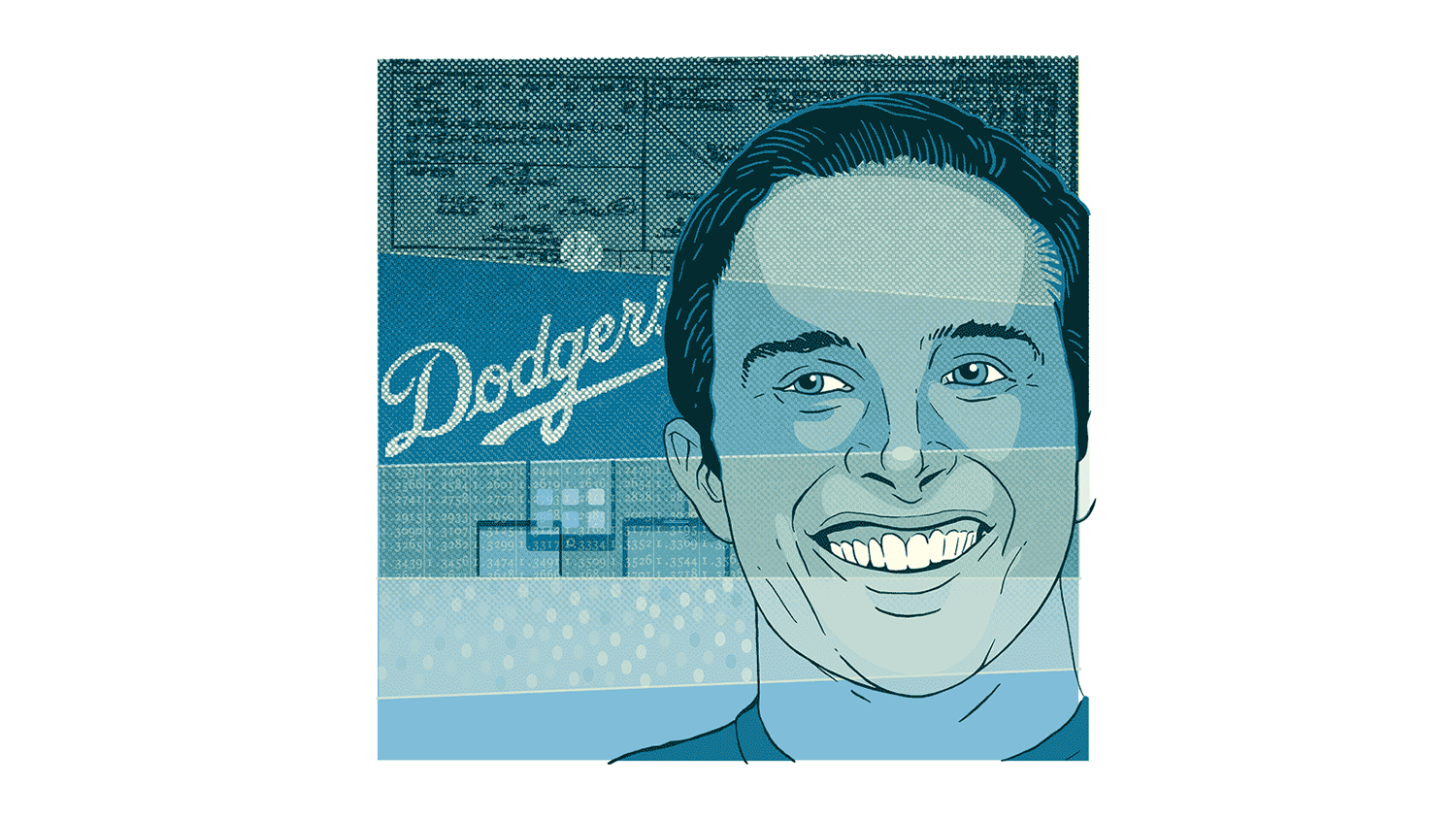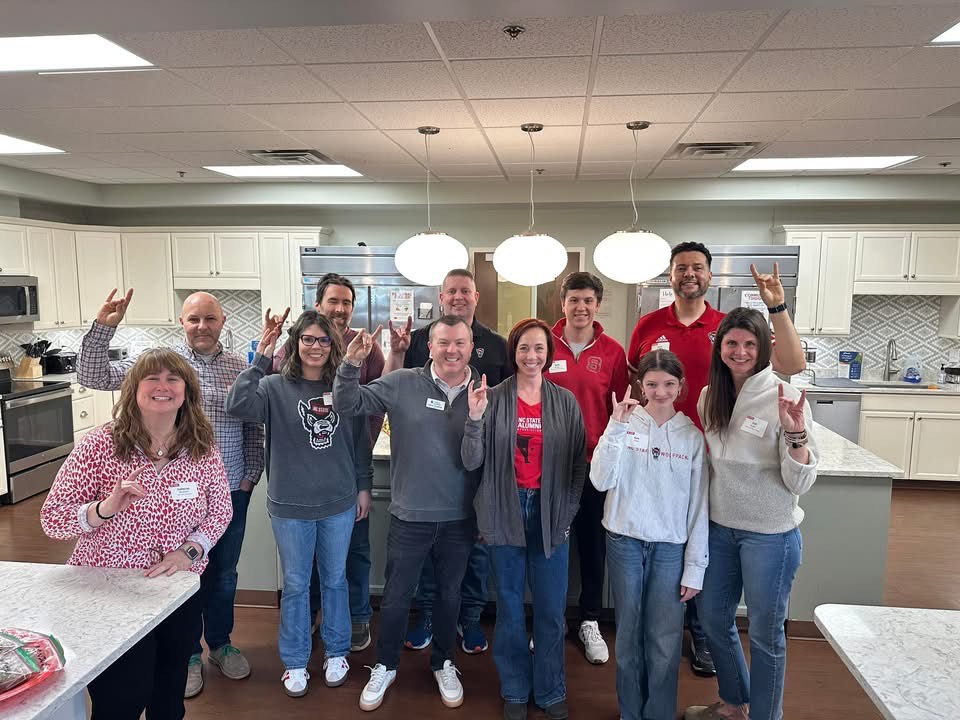Written by Chris Saunders
Few have the views that Nick Kapur ’15, ’17 MR gets to take in when he pulls into work at his office in Dodger Stadium each day. “The weather is nice all the time,” says Kapur, a senior quantitative analyst for the Los Angeles Dodgers. “I love pulling into the stadium every day with the mountains behind it.”
But Kapur, 28, hardly saw that view in 2020, as his office space shifted to his home in nearby Glendale, Calif., because of the COVID-19 pandemic. It was there that he continued his work studying advanced statistics and building models to inform player evaluations and in-game decisions. Just as he had to adjust, so too did the Dodgers as Major League Baseball’s usual 162-game schedule shrank to just 60 games and began in July instead of March.
Back in early 2020, Kapur says it looked like things were lining up to be pretty ordinary. He was slated to leave for spring training in Arizona in mid-March, when COVID-19’s impact was still conjecture. Then things changed overnight. His trip to the Cactus League was a no-go, and MLB announced on March 12 it was halting spring training and delaying opening day, which would ultimately be postponed by four months.
“It was wild,” says Kapur, whom NC State magazine profiles in the winter 2020 issue. The team was already in the midst of trying out some of the models and strategies Kapur and his team had developed. “We were testing them at spring training. And all of a sudden, it was gone.”
Kapur worked on Dodger projects from his home base for most of the season. He also got some time to mix in his dissertation work, as he plans to complete his Ph.D. in statistics at NC State in 2021. (Kapur also was once part of NC State’s Sports Analytics Club, which still exists today.) But the early part of the pandemic, when it wasn’t entirely clear when or if baseball would be back wasn’t always easy. “It was a very tough stretch,” he says. “A lot of watching T.V. and monitoring the news.”
Then July 23 and opening day rolled around. Even the return to play felt a bit disorienting, with teams staring down a schedule that was about 40 percent of what a normal regular season would be. “We adapted basically to a COVID reality,” Kapur says. “We’ve played twenty-five, thirty games, and everybody’s still in it.”
But just like in recent years, all the Dodgers did in 2020 was win, eventually capturing their first World Series since 1988 by defeating the Tampa Bay Rays in six games.
Kapur says he actually got to attend the first five games of the World Series in Texas, which allowed limited crowd size for the Fall Classic, because of a lottery system he won within the Dodgers’ organization. But he returned to Los Angeles for Game 6, which wound up being the decisive game, to watch with his wife. “After the last strike I went crazy for a few minutes and then had FaceTime calls with my parents, my grandparents, my siblings, and my coworkers,” he says. “I was still full of energy, so I think I ended up doing a cycling class on our Peloton at 1:30 a.m.”
A few days later, Kapur’s analytics team celebrated with a socially distanced picnic at a park near Dodger Stadium. “They recently asked for our ring sizes, so I think the ring ceremony is the next big step,” Kapur says. “For now, I’m just enjoying being a part of the reigning champions and gearing up for our attempt to repeat.”



